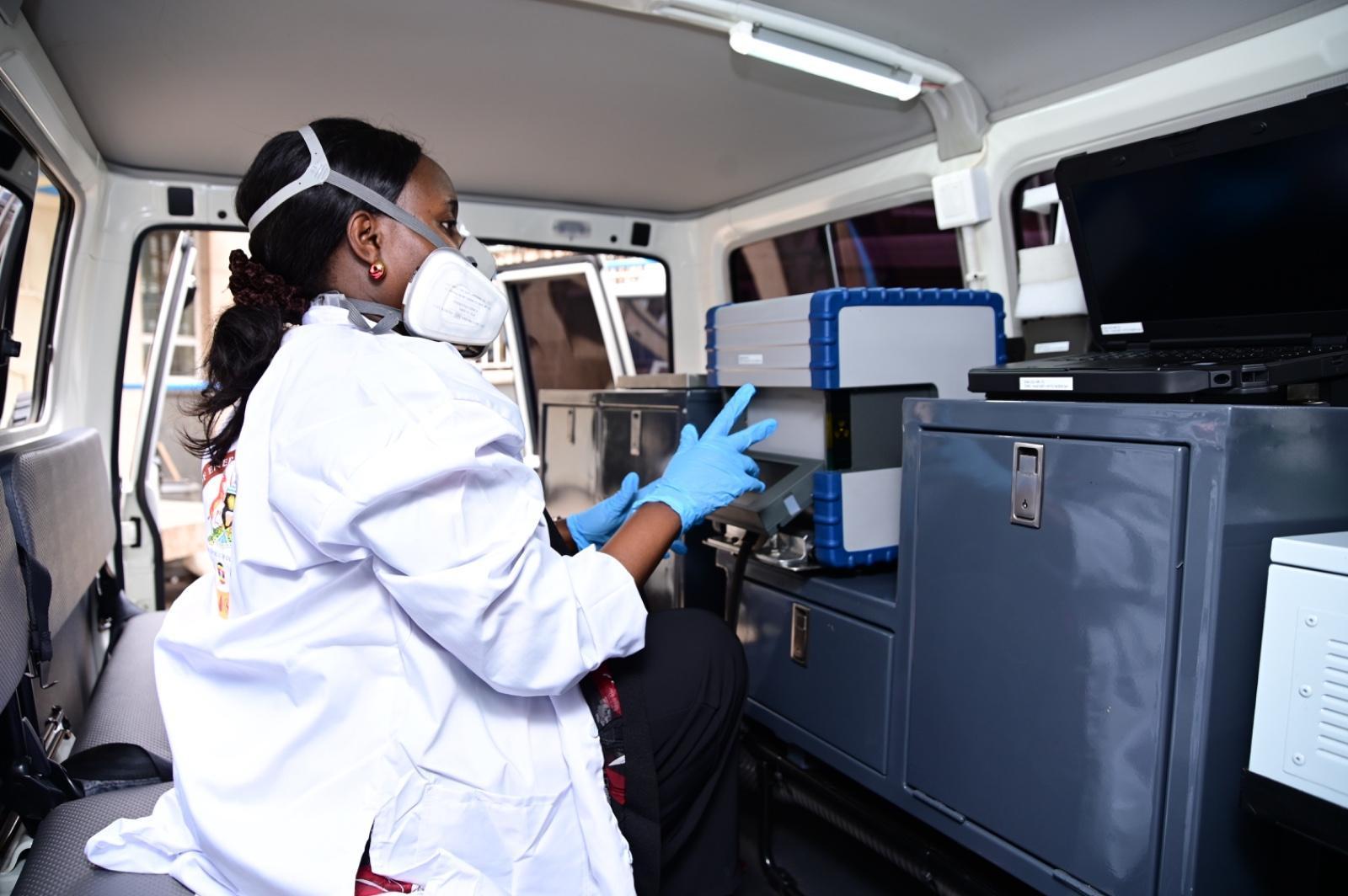Africa-Press – Uganda. The Ministry of Energy and Mineral Development (MEMD) in Uganda has bolstered its efforts to combat rampant fuel fraud across the country, officially taking receipt of two new high-tech mobile laboratory units from its technical partner, SICPA Uganda.
The handover, which took place in Kampala on 30 October 2025, brings the national fleet of these crucial enforcement vehicles to a total of ten (10), marking a significant escalation in the government’s capacity to police its petroleum supply chain.
These specialised mobile labs are essential components of the government’s ongoing drive to strengthen fuel quality monitoring and enforcement nationwide, ensuring that every drop of fuel sold to Ugandan consumers meets the required quality and tax standards.
The broader framework for this effort is the Fuel Marking and Quality Monitoring Programme (FQMP), a long-running initiative designed to strictly control and monitor the quality of petroleum products throughout the entirety of Uganda’s supply chain.
This regulatory programme was introduced to counter the widespread, economically damaging practices of fuel adulteration and smuggling, which simultaneously deprive the government of vital tax revenue and expose consumers to substandard products that can severely damage vehicles.
Through its sustained application, the FQMP has established itself as a cornerstone of the country’s petroleum sector, delivering notable economic benefits through improved revenue collection, enhanced market transparency, and overall stability within the energy market.
The technology that underpins this system relies on a collaborative partnership. The FQMP is implemented by SICPA Uganda, the provider of the unique chemical markers and the analytical equipment, operating under the direction of the Ministry of Energy and Mineral Development and in close liaison with the Uganda National Bureau of Standards (UNBS).
This partnership specifically targets the twin crimes of tax evasion and the mixing of fuel, ensuring that all fuel sold across Uganda is compliant with stringent national quality standards.
Speaking at the formal handover ceremony, Ms. Suzan Mweheire Kitariko, General Manager of SICPA Uganda, reaffirmed the company’s role in the public-private effort: “We are proud to work with the Ministry of Energy to strengthen fuel quality monitoring across Uganda.”
The latest reinforcement to the mobile lab fleet was warmly welcomed by the officials responsible for the programme’s day-to-day operations, signaling the strategic importance of the acquisition.
Among those welcoming the new mobile laboratories as part of the Ministry’s ongoing quality assurance efforts were Mr. Steven Barisigara, Project Coordinator of the FQMP, and Mr. Peter Kitimbo, UNBS FQMP Field Supervisor. Their comments underscored the direct impact these mobile units have on field operations and national fiscal health.
Mr. Peter Kitimbo, from the regulatory arm of the programme, detailed the comprehensive nature of the protection offered by the entire system. He stated clearly that: “The fuel marking programme helps us monitor fuel quality across the entire supply chain, ensuring consumers receive products that meet standards and preventing adulteration.”
In addition to this focus on consumer protection, he highlighted the tangible benefits for the public purse, adding that “the system has strengthened the government’s fiscal position by reducing opportunities for tax fraud.”
The true significance of the additional units lies in the geographical reach and speed of analysis they enable. A mobile fuel laboratory is designed to provide a fast and highly accurate solution for conducting crucial field-based fuel quality checks.
These vans are equipped with portable, fully automated analyzers, which empower a single Ministry technician to perform detailed fuel analyses efficiently and in real time.
This immediate analysis capacity is vital for ensuring compliance and consistency across the diverse and complex supply logistics. These ten mobile testing laboratories are used to conduct rapid spot sampling and fuel quality tests both at retail stations scattered across the country and on high-capacity trucks moving in transit, creating a permanent, unpredictable regulatory presence throughout the supply chain.
Mr. Steven Barisigara emphasiSed how the latest additions directly translate into a more robust national enforcement strategy. He stressed the importance of increasing visibility and presence on the ground, arguing: “With these additional mobile labs, the Ministry’s capacity to expand coverage across the country will improve. This enhancement strengthens our ability to monitor fuel quality nationwide.”
The expansion reflects a firm governmental commitment to creating an insurmountable barrier to those who profit from illicit fuel trade. The increase in the mobile fleet raises the probability of detection for smugglers and adulterers, thereby boosting the policy’s deterrent effect.
The overall efficacy of the FQMP rests heavily on this combination of cutting-edge marking technology and expanded, decentralised mobile enforcement.
In sum, the latest handover of mobile labs reflects SICPA Uganda’s continued partnership with the government in a national effort to protect fuel quality, increase critically needed revenue collection, and promote fairness and transparency within Uganda’s energy sector.
This technological upgrade represents a strategic investment in economic integrity, positioning the government to more effectively police a vital national resource and defend its financial interests against transnational crime.
For More News And Analysis About Uganda Follow Africa-Press






